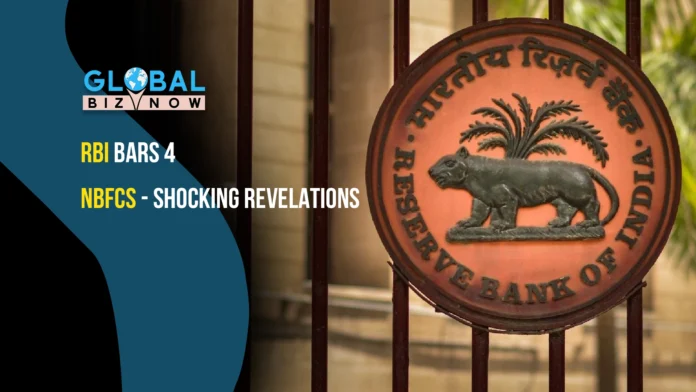The RBI has barred four non-banking finance companies – Asirvad Micro Finance Ltd promoted by Manappuram Finance, Arohan Financial Services Ltd, Mitsubishi backed DMI Finance and Navi Finserv, founded by former Flipkart founder Sachin Bansal – from the sanctioning and disbursement of loans for violation of various rules, including excessive pricing of loans. The problem runs deep as several NBFCs and lending apps-both legal and illegal ones –are reported to be indulging in usurious pricing of loans and recovery methods.
Charges against them
The basic complaint against the four lenders is exorbitant interest charges levied by them. According to the RBI, its action is based on material supervisory concerns observed in the pricing policy of these companies in terms of their weighted average lending rate and the spread charged over their cost of funds, which are found to be excessive and not in accordance with the regulations. The RBI has not prescribed any upper limit on loans, yet it wants lenders to be transparent in pricing. However, this has not been followed literally and in spirit by the lenders.
The Reserve Bank has been sensitizing its regulated entities through various channels on the need to use their regulatory freedom responsibly and ensure fair, reasonable and transparent pricing, especially for small value loans. However, unfair and usurious practices continued to be seen during the course of onsite examinations as well as from the data collected and analysed offsite.
Apart from usurious pricing, the report found that NBFCs were in various non-adherence with the regulatory guidelines on the assessment of the household income and consideration of the existing/proposed monthly repayment obligations in respect of their microfinance loans. Income Recognition & Asset Classification (IR&AC) norms resulted also in deviations, which led to evergreening of loans, conduct of gold loan portfolio, mandated disclosure requirements on interest rates and fees, and outsourcing of core financial services.
People and small enterprises are complaining that they are falling prey to an increasing number of unauthorized digital lending platforms and mobile apps that promise loans in quick and hassle-free ways, the regulator said. These reports also referred to excessive rates of interest and additional secret charges being sought from borrowers, adoption of unacceptable and high-handed recovery methods and misuse of agreements to access data on the mobile phones of the borrowers,” the RBI had earlier said.
In respect of safeguarding the interest of customers from those unethical business practices in digital lending, such as mis-selling, breach of data privacy, unfair business conduct, and charging of exorbitant interest rates adopted by digital lenders, the guidelines on digital lending were issued by RBI in September 2022.
In addition to all the above practices, successive reports have surfaced with continued existence of fraudsters who operate through digital lending and, falsely claiming association with RBI regulated entities (REs), charge exorbitant interest rates on loans disbursed. In many cases, the borrowers pay many times the actual amount borrowed, mainly because of several hidden charges.
Borrowers are not aware of the interest charges on their loans, and they tend to go as high as 60 per cent and above. Rules stipulate that regulated entities should disclose the rate charged to the borrower of a digital loan upfront, ensure that borrowers get awareness of the products at the time of on-boarding and capture the economic profile of the borrowers before offering the loans.
Predatory loan applications
Many thousands of people have fallen prey to predatory loan applications in the absence of proper enforcement of regulations with borrowers even suffering sexual harassment and ending up giving extortion money to loan recovery agents.
.
The digital loan apps provide loans with much less hassle but take the contact list from the loanee. The harassment for repayment of the loan with a high rate of interest starts within weeks of securing the loan. The abuse in harassment is in the form of multiple calls and abusive SMSes sent to him and people in his contact list. The loan recovery agents who use WhatsApp to just call and send messages also send pornographic videos having morphed images of the loanee. Such agents end up extorting much more than the loan amount taken by the borrower.
RBI repository
The Reserve Bank of India has now decided to create a public repository of digital lending apps (DLAs) deployed by the regulated entities (REs) in order to aid the customers in verifying the claim of DLAs’ association with regulated entities like banks and avoid illegal apps. The repository will be based on data submitted by the REs (without any intervention by the RBI) directly to the repository and will get updated as and when the REs report the details — addition of new DLAs or deletion of any existing DLA. This data will be available on the RBI’s website, it said. The repository will enable borrowers in identifying whether the lending app is illegal or legal.
Conclusion
As such, this action of the RBI emphasizes the importance of regulation and consumer alertness in preventing exploitation in the lending market. Borrowers always have to look at the terms of loans, compare, and seek open lenders to avoid getting caught up in large debt.



